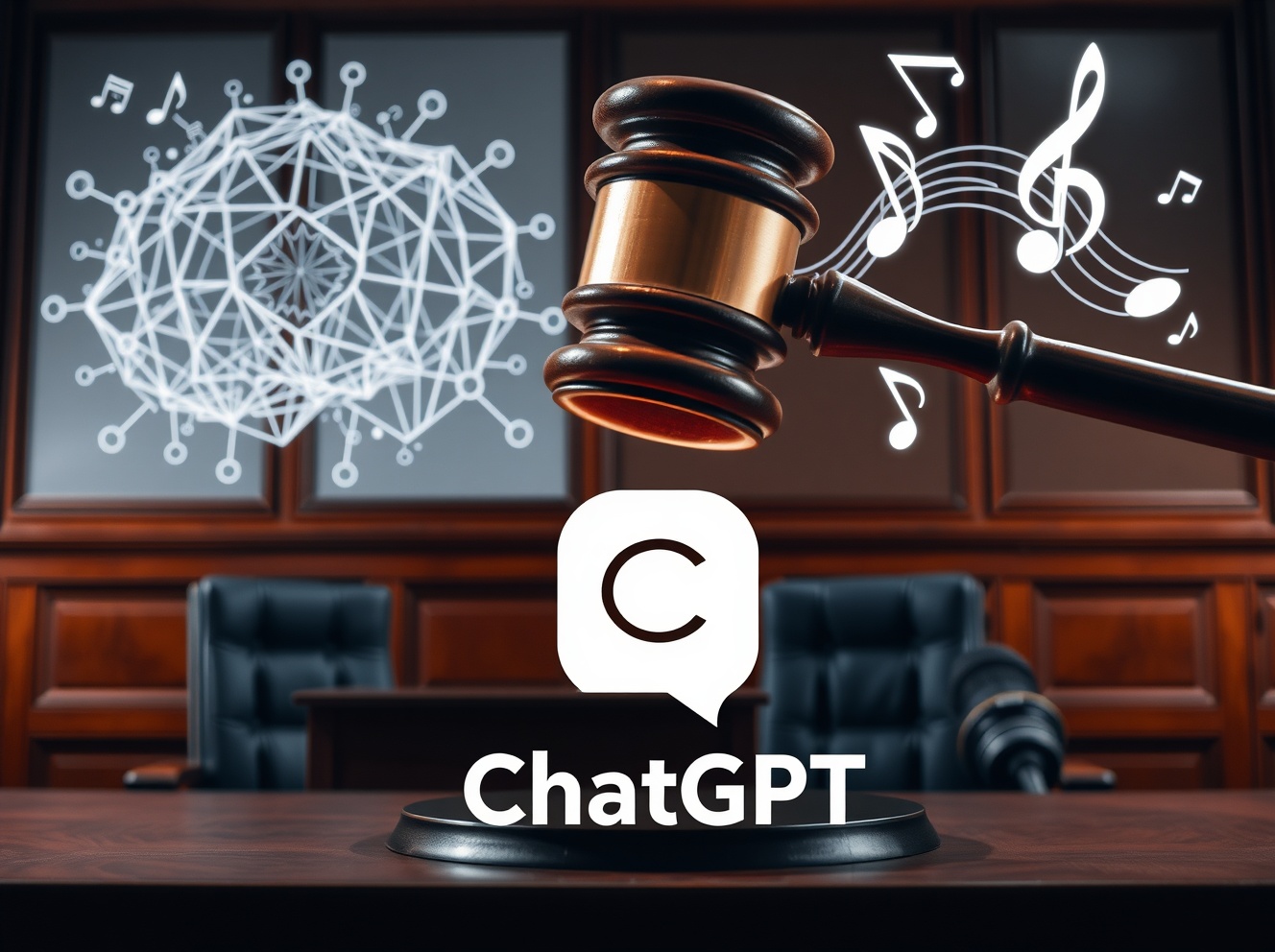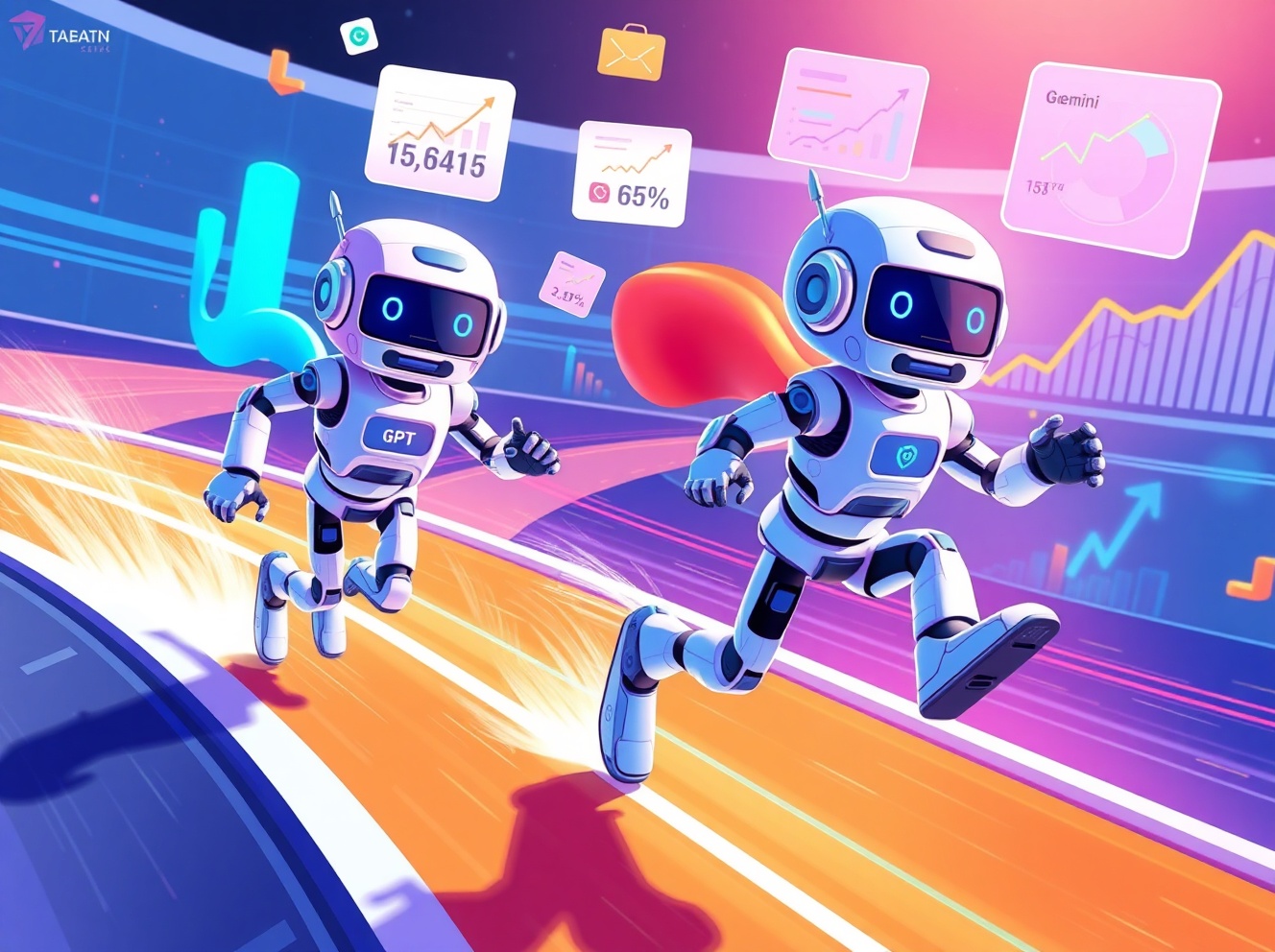Shocking OpenAI Copyright Violation: German Court Orders Damages in Landmark ChatGPT Ruling

Share:
BitcoinWorld
Shocking OpenAI Copyright Violation: German Court Orders Damages in Landmark ChatGPT Ruling
In a stunning legal blow that sends shockwaves through the AI industry, OpenAI faces massive consequences for its ChatGPT training practices. A German court has delivered a landmark ruling that could fundamentally reshape how artificial intelligence companies operate across Europe and beyond.
OpenAI Copyright Violation: What Exactly Happened?
The core issue centers on how OpenAI trained its ChatGPT language models. The court found that the company used licensed musical works without proper authorization from rights holders. This OpenAI copyright violation represents a critical test case for AI development practices worldwide.
ChatGPT Legal Issues Reach Critical Mass
This isn’t an isolated incident for OpenAI. The company faces multiple lawsuits from creative professionals and media groups alleging similar copyright infringements. The German case sets a powerful precedent that could influence outcomes in other jurisdictions.
| Key Players | Role in Case | Outcome |
|---|---|---|
| OpenAI | Defendant | Found liable for copyright infringement |
| GEMA | Plaintiff | Successful in protecting member rights |
| German Court | Adjudicator | Set European legal precedent |
AI Training Data Under Legal Scrutiny
The heart of the matter lies in how companies source and use data for AI training. The court’s decision highlights several critical concerns:
- Training data must respect existing copyright protections
- AI companies cannot assume fair use applies to commercial training
- Rights holders have legal recourse against unauthorized use
- Transparency in data sourcing becomes essential
German Court Ruling Sets European Precedent
GEMA CEO Tobias Holzmüller called this the “first landmark AI ruling in Europe.” The decision establishes that AI tool operators must comply with copyright law, protecting the livelihoods of content creators. This German court ruling could influence how other European nations approach similar cases.
GEMA Lawsuit Victory: What It Means for Creators
The successful GEMA lawsuit represents a major victory for rights holders. Music creators and other content producers now have a legal framework to protect their work from unauthorized AI training. This case demonstrates that existing copyright laws can effectively regulate emerging AI technologies.
Frequently Asked Questions
What specific copyright law did OpenAI violate?
The court found that OpenAI violated German copyright law by training ChatGPT on licensed musical works without obtaining proper permission from rights holders represented by GEMA.
How much damages must OpenAI pay?
The exact amount remains undisclosed, but the court ordered OpenAI to pay compensation to GEMA for the copyright infringement.
What was OpenAI’s response to the ruling?
OpenAI stated they disagree with the ruling and are “considering next steps,” indicating potential appeals or legal challenges.
How does this affect other AI companies?
This ruling sets a precedent that could impact how all AI companies, including those led by figures like Sam Altman, approach training data sourcing and copyright compliance.
What does this mean for the future of AI development?
The decision forces AI companies to be more transparent about their training data sources and could lead to increased licensing agreements with content creators.
This landmark ruling represents a watershed moment for AI regulation and copyright protection. As artificial intelligence continues to evolve, the balance between innovation and intellectual property rights becomes increasingly critical. The German court’s decision establishes clear boundaries that will shape how AI companies operate and how creators protect their work in the digital age.
To learn more about the latest AI legal developments and regulatory trends, explore our article on key developments shaping AI compliance and copyright enforcement standards.
This post Shocking OpenAI Copyright Violation: German Court Orders Damages in Landmark ChatGPT Ruling first appeared on BitcoinWorld.
Shocking OpenAI Copyright Violation: German Court Orders Damages in Landmark ChatGPT Ruling

Share:
BitcoinWorld
Shocking OpenAI Copyright Violation: German Court Orders Damages in Landmark ChatGPT Ruling
In a stunning legal blow that sends shockwaves through the AI industry, OpenAI faces massive consequences for its ChatGPT training practices. A German court has delivered a landmark ruling that could fundamentally reshape how artificial intelligence companies operate across Europe and beyond.
OpenAI Copyright Violation: What Exactly Happened?
The core issue centers on how OpenAI trained its ChatGPT language models. The court found that the company used licensed musical works without proper authorization from rights holders. This OpenAI copyright violation represents a critical test case for AI development practices worldwide.
ChatGPT Legal Issues Reach Critical Mass
This isn’t an isolated incident for OpenAI. The company faces multiple lawsuits from creative professionals and media groups alleging similar copyright infringements. The German case sets a powerful precedent that could influence outcomes in other jurisdictions.
| Key Players | Role in Case | Outcome |
|---|---|---|
| OpenAI | Defendant | Found liable for copyright infringement |
| GEMA | Plaintiff | Successful in protecting member rights |
| German Court | Adjudicator | Set European legal precedent |
AI Training Data Under Legal Scrutiny
The heart of the matter lies in how companies source and use data for AI training. The court’s decision highlights several critical concerns:
- Training data must respect existing copyright protections
- AI companies cannot assume fair use applies to commercial training
- Rights holders have legal recourse against unauthorized use
- Transparency in data sourcing becomes essential
German Court Ruling Sets European Precedent
GEMA CEO Tobias Holzmüller called this the “first landmark AI ruling in Europe.” The decision establishes that AI tool operators must comply with copyright law, protecting the livelihoods of content creators. This German court ruling could influence how other European nations approach similar cases.
GEMA Lawsuit Victory: What It Means for Creators
The successful GEMA lawsuit represents a major victory for rights holders. Music creators and other content producers now have a legal framework to protect their work from unauthorized AI training. This case demonstrates that existing copyright laws can effectively regulate emerging AI technologies.
Frequently Asked Questions
What specific copyright law did OpenAI violate?
The court found that OpenAI violated German copyright law by training ChatGPT on licensed musical works without obtaining proper permission from rights holders represented by GEMA.
How much damages must OpenAI pay?
The exact amount remains undisclosed, but the court ordered OpenAI to pay compensation to GEMA for the copyright infringement.
What was OpenAI’s response to the ruling?
OpenAI stated they disagree with the ruling and are “considering next steps,” indicating potential appeals or legal challenges.
How does this affect other AI companies?
This ruling sets a precedent that could impact how all AI companies, including those led by figures like Sam Altman, approach training data sourcing and copyright compliance.
What does this mean for the future of AI development?
The decision forces AI companies to be more transparent about their training data sources and could lead to increased licensing agreements with content creators.
This landmark ruling represents a watershed moment for AI regulation and copyright protection. As artificial intelligence continues to evolve, the balance between innovation and intellectual property rights becomes increasingly critical. The German court’s decision establishes clear boundaries that will shape how AI companies operate and how creators protect their work in the digital age.
To learn more about the latest AI legal developments and regulatory trends, explore our article on key developments shaping AI compliance and copyright enforcement standards.
This post Shocking OpenAI Copyright Violation: German Court Orders Damages in Landmark ChatGPT Ruling first appeared on BitcoinWorld.


